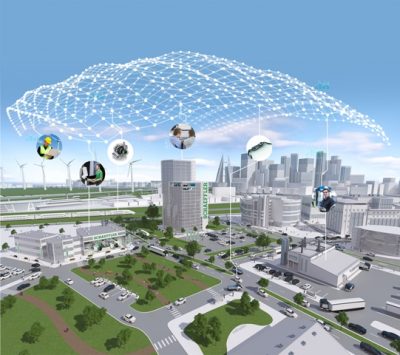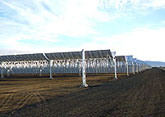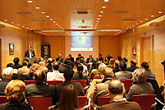Schaeffler, a global supplier for the industrial, smart cities and automotive sectors, plans to hire 600 experts worldwide in the next few years to develop tomorrow’s digital mobility solutions. The new jobs planned are part of the digitization strategy that the company started last year. One of the strategy´s central axes is the development of smart products.
At CES 2017, Schaeffler showed the way in which the visions of automated driving, electrification and networking can become a reality. And in fact, cars are already part of the Internet of Things, with machines sharing data with each other to provide better solutions to people. «This development is a huge opportunity for Schaeffler,» explains Gerhard Baum, Schaeffler’s Chief Digital Officer.
«Our components and systems are needed precisely where the efforts, the forces and torques work: in the drive train and the frame«. If these components, such as bearings used in frames, are equipped with sensors that measure torque, forces, vibrations and temperatures, we can record essential information about the condition and operation of both the module and the complete system, the company said in a statement.
Smart cities and automated driving
Schaeffler has already laid the technical basis for integrating these sensors and actuators into the components by developing the Sensotect bearing, which collects measurements using nanostructured coatings.
«What is important here is not the fact that we record the data, but also that we can interpret them correctly and turn them into measures,» says Gerhard Baum. «Schaeffler has the necessary knowledge in this field, not only in the automotive industry, but also in other sectors such as the wind energy industry.» The integration of sensors in complex equipment and vehicles generates large volumes of data that must be interpreted and converted into added value, so Baum explains that they are creating the conditions for this process.
Source: Schaeffler
Strategic partnership with IBM
In this regard, he recalls how in October 2016 they achieved an important milestone with the strategic partnership agreement with IBM for the development of smart cities. Now Schaeffler not only has access to the cloud environment or «Watson» technology, but it has become an IT partner, enabling them to implement both new and proven methods.
«Significant progress is now being made in the development of automatic learning and artificial intelligence,» Gerhard Baum explains. And to go faster, in the next few years, Schaeffler plans to hire a significant number of experts in the fields of data architecture, data analysis, creative thinking, mobile application development and business models, with the goal of developing innovative applications for the automotive industry and other sectors.
Active automobile rolling control
The new technologies will allow Schaeffler to expand the components and systems functionality through data generation and preparation. Real-time analysis and cognitive systems will turn the generated data into valuable information and recommended actions.
For example, at CES Schaeffler presented a mechatronic system of active rolling control capable of maintaining the car structure in a horizontal position when driving in curves regardless of road conditions.
In this mechatronic system by Schaeffler, which is now in series production, a particularly efficient electrical actuator compensates for the first time the vehicle rolling. The next generation of this actuator will also have the potential to act as a sensor that will record 3D data on the state of the road.
This information combined with accurate GPS and smart evaluation systems can lead to real-time information that can be useful for vehicles driving behind or for the infrastructure operator, the statement notes.
More efficient wind turbines
As energy production is becoming increasingly important for the electrification of road traffic, another pilot project will ensure that wind turbines operate more efficiently. Schaeffler already offers solutions that allow controlling the components of the wind turbines for these to work correctly.
In the future the company claims that it will be able to calculate the residual life of each individual component with the aid of learning algorithms, so that each wind turbine can have its own optimized operation strategy. This will minimize unexpected failures.
The new digital infrastructure and the initial set of applications are only part of the Schaeffler digitization offensive, the company says. «We also digitize processes in our own production plants, as well as in many other areas of the company,» explains Gerhard Baum. «By combining our knowledge of systems in the automotive and engineering industries with digitization, we are a very attractive company for data analysts, data architects, creative thinking experts and application developers.»
Carlos Sánchez Criado
Publicista por la Universidad Complutense. Director comercial de publicaciones técnicas del sector de la energía durante doce años. Director de Energy News Events, S.L. desde 2012 difundiendo información en Energynews.es, movilidadelectrica.com e hidrogeno-verde.es. Y por supuesto, organizando eventos como VEM, la Feria del Vehículo Eléctrico de Madrid.


























